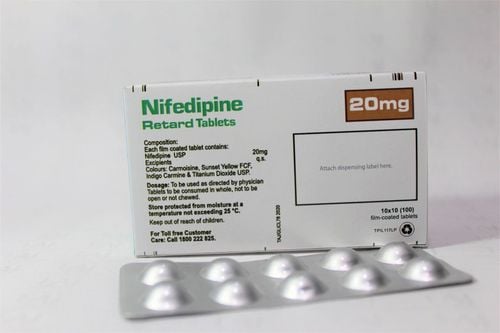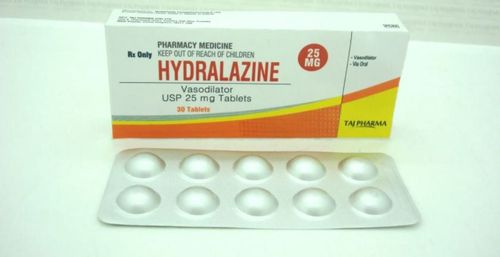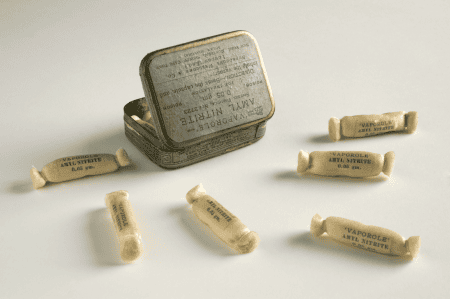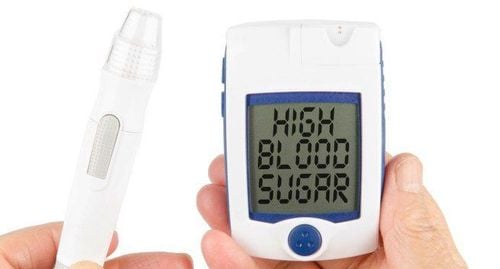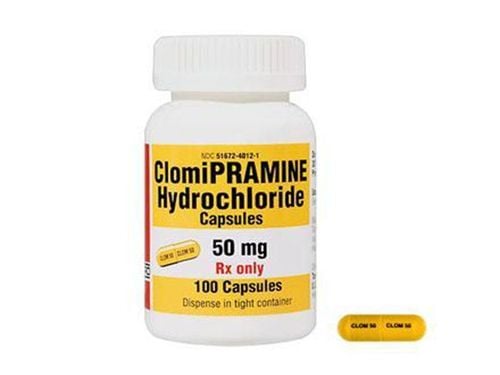This is an automatically translated article.
Dilation of blood vessels is caused by vasodilators that reduce the concentration of Ca2 ions in the blood and in the smooth muscle cells of the vessel walls. Doctors prescribe vasodilators when other medications fail to control blood pressure well, or use vasodilators to support other medications in the treatment of high blood pressure or other cardiovascular conditions such as heart failure, chest pain.
1. Vasodilators
Vasodilation is the widening of blood vessels, which results from the relaxation of smooth muscle cells in the vessel walls, specifically in the great veins, great arteries, and smaller arterioles. Vasoconstriction is the narrowing of blood vessels, the opposite of vasodilation.
When blood vessels dilate, blood flow increases due to decreased vascular resistance and increased cardiac output. Therefore, dilation of the arteries, mainly the arterioles, lowers blood pressure. The response is extrinsic due to hormones or the nervous system or may be intrinsic to local processes in surrounding tissue. In addition, responses depending on the metabolic demands of a particular tissue can be localized in one organ for example during exercise or be systemic seen throughout the circulatory system.
Such vasomotor activity is important for homeostasis that keeps the body functioning properly and for endogenous substances as well as vasodilators collectively known as vasodilators.
2. Mechanism of vasodilators
The mechanism of vasodilators in the treatment of hypertension is to dilate veins and artery walls, prevent blood vessel spasms, make blood vessels dilate, blood more easily circulate and lower blood pressure. The dilation of blood vessels is caused by vasodilator drugs that reduce the concentration of Ca2 ions in the blood and in the smooth muscle cells of the vessel wall.
Doctors prescribe vasodilators when other drugs cannot control blood pressure well or use vasodilators to support other drugs in the treatment of high blood pressure.
3. Classification of vasodilators
Depending on the site of action of the drug, vasodilators are divided into three groups as follows:
Vasodilators act on the veins. Vasodilators act on the arteries. Vasodilators act simultaneously on both veins and arteries. Almost all vasodilators fall into this class.

Hiện nay đang có một số nhóm thuốc giãn mạch khác nhau
4. Groups of vasodilators:
ACE inhibitors such as Perindopril, Fosinopril, Trandolapril, Captopril, Benazepril, Enalapril, Lisinopril, Quinapril. Angiotensin II receptor antagonists such as Azilsartan, Candesartan, Eprosartan, Irbesartan, Losartan, Olmesartan, Telmisartan, Valsartan Alpha blockers such as alfuzosin, doxazosin, prazosin Nitrate drugs such as glyceryl isosorbide mononitrate, isosorbide dinitrate, trinitrate. Calcium antagonists such as Amlodipine, Felodipine, Isradipine, Nicardipine, Nifedipine, Nimodipine. phosphodiesterase-5 (PDE-5) inhibitors such as sildenafil, vardenafil, tadalafil
5. Application of vasodilators in treatment
5.1. High blood pressure Because drugs with a direct effect on the vessel wall, causing strong vasodilatation to lower blood pressure are vasodilators such as:
Calcium channel blockers: Amlodipine, Felodipine, Isradipine, Nicardipine, Nifedipine, Nimodipine . ACE inhibitors: Perindopril, Fosinopril, Trandolapril, Captopril, Benazepril, Enalapril, Lisinopril, Quinapril. 5.2. Angina Angina occurs when the coronary arteries do not supply enough blood to the heart. Vasodilators increase blood flow through the heart, so they are often indicated for the treatment of angina, specifically:
Nitrate vasodilators: isosorbide mononitrate, isosorbide dinitrate, glyceryl and trinitrate. 5.3. Heart failure Heart failure is a chronic disease that affects the patient's life expectancy, which is of great interest to experts in the current period, is a condition in which the heart muscle is weakened leading to insufficient blood being pumped to supply the organs. organs of the body. The classes of vasodilators indicated in the treatment of heart failure include:
ACE inhibitors: Perindopril, Fosinopril, Trandolapril, Captopril, Benazepril, Enalapril, Lisinopril, Quinapril. Angiotensin II antagonists: Losartan, Olmesartan, Telmisartan, Valsartan, Azilsartan, Candesartan, Eprosartan, Irbesartan Beta-blockers: Acebutolol, Carvedilol, Bisoprolol, Penbutolol sulfate, Nebivolol, Pindolol, Propranolol, Solotol hydrochloride, Metoprolol succinate, Timol , Atenolol, Metoprolol tartrate. 5.4. Treatment of erectile dysfunction Vasodilators are the first choice of male doctors for patients with erectile dysfunction because they relax the smooth muscle in the penis, helping to increase blood flow to the cavernous body causing erection. If the patient is hard, the patient takes this drug 1 hour before intercourse, then only needs stimulation, sexual desire, the penis will be erect or used according to the daily dose of doctors. That vasodilator belongs to the group:
PDE-5 enzyme inhibitors: sildenafil, vardenafil, tadalafil.
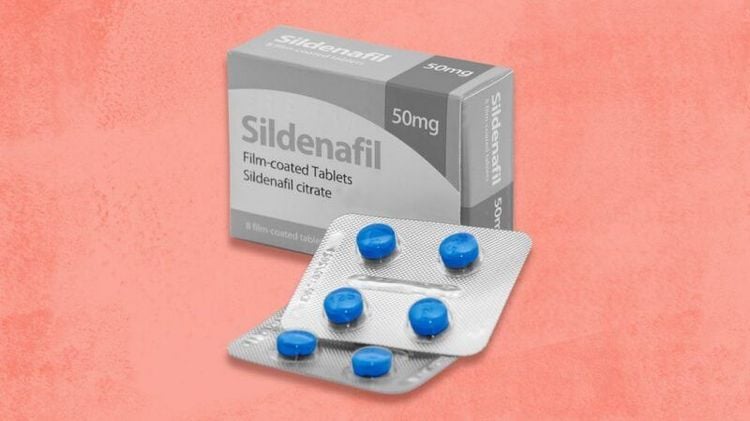
Sildenafil là một trong các loại thuốc giãn mạch trị rối loạn cương dương
6. Things to pay attention to when treating with vasodilators
Common side effects of vasodilators such as tachycardia, edema, chest pain, dizziness, nausea, palpitations. People with a history of low blood pressure should not use vasodilators or people with severe anemia, caution when using vasodilators for pregnant women or women who are breastfeeding. Vasodilator effects can be dangerous on the heart when two classes of nitrates are used concurrently with PDE-5 inhibitors. Therefore, two groups of nitrate drugs should not be combined with PDE-5 enzyme inhibitors. Most of the groups of vasodilators are drugs that must be prescribed by a doctor, patients must not self-administer, must be examined, prescribed and monitored periodically by specialists. It is best when there is a problem with health or the process of taking medication, patients should go to medical facilities to be examined by a doctor and have the most in-depth advice.
Please dial HOTLINE for more information or register for an appointment HERE. Download MyVinmec app to make appointments faster and to manage your bookings easily.




